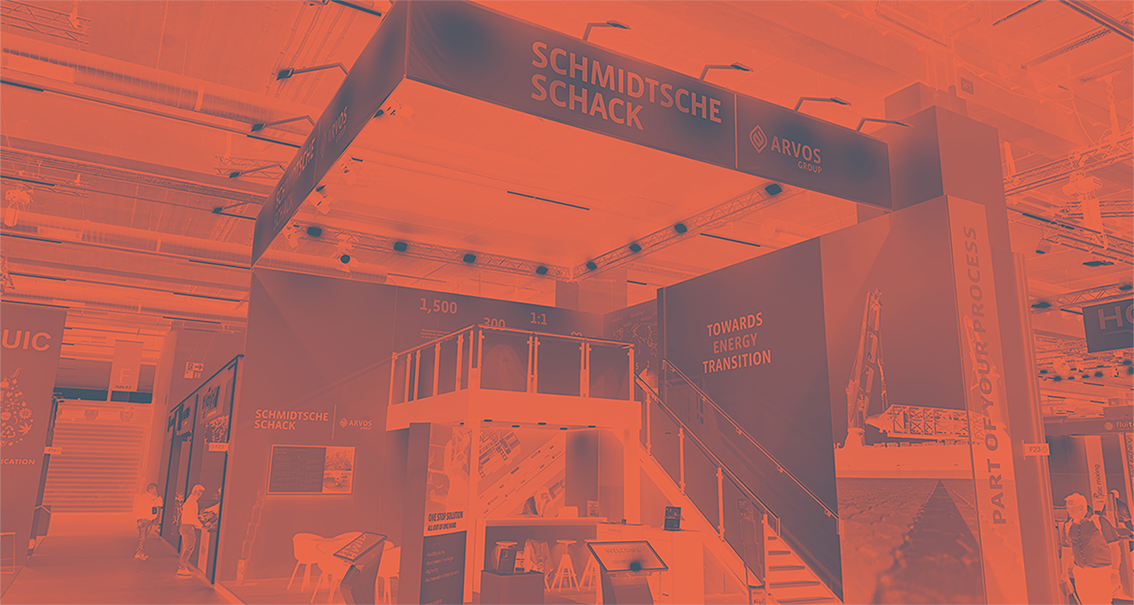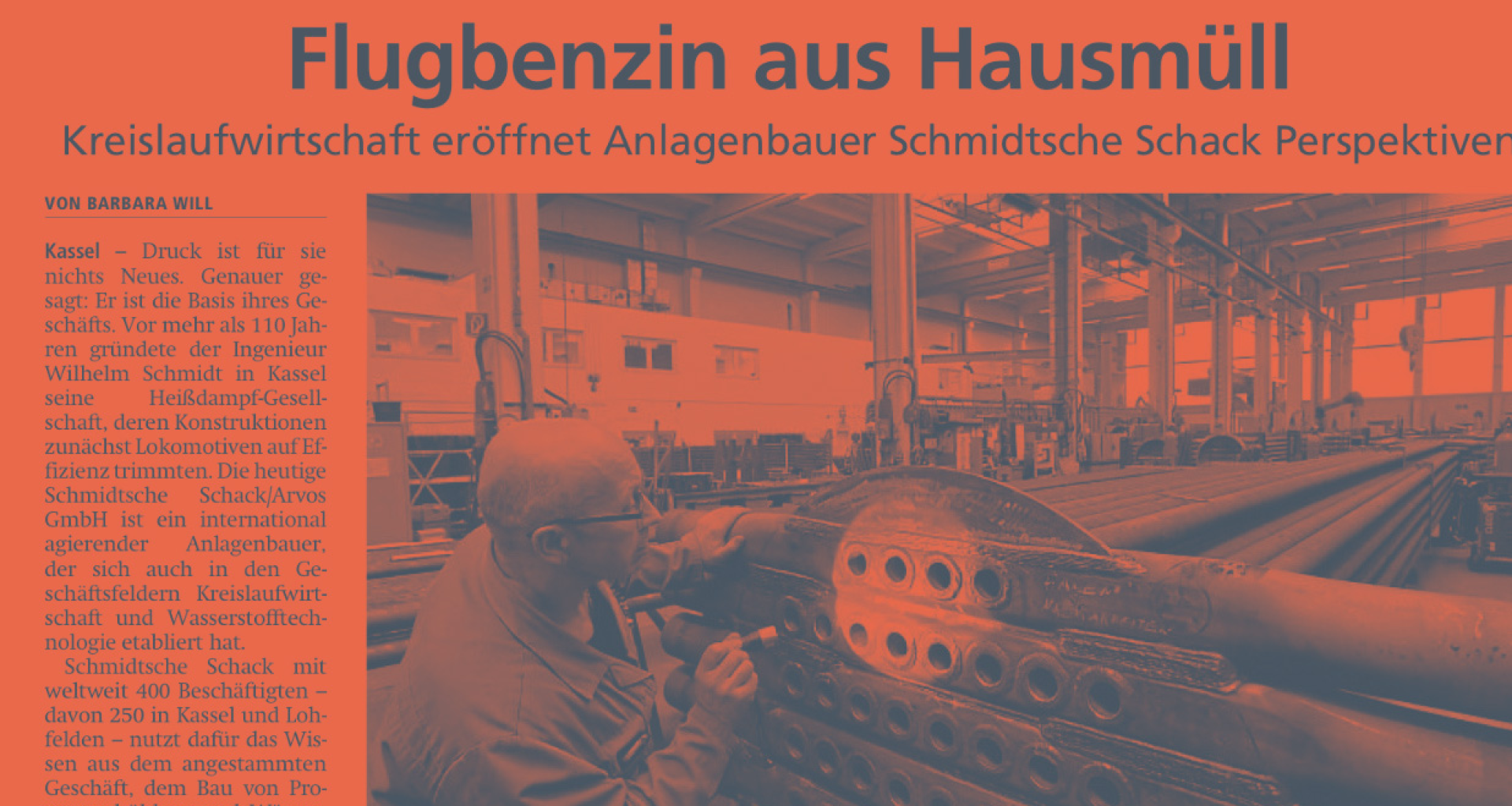At SCHMIDTSCHE SCHACK, we deliver advanced heat transfer solutions that make industrial processes more energy-efficient, reliable, and future-proof. With over 110 years of experience, we combine German engineering with innovation and process expertise to help our customers reduce emissions, recover energy, and improve long-term performance.
Whether in the chemical, petrochemical, metallurgical or refining industry – our technologies are an integral part of the journey toward a more sustainable process economy.
SCHMIDTSCHE SCHACK technologies contribute to a more sustainable future by enabling efficient energy recovery in the production of essential goods such as hydrogen, methanol, steel, and fertilizers.
Our solutions reduce emissions, save resources, and support the global transition toward greener industries.






As a versatile energy source and basic material for the chemical industry, hydrogen is a key building block for a sustainable future. It is used in refineries, ammonia production, the steel industry and increasingly also as an emission-free fuel in mobility and energy supply.
Hydrogen is mainly produced by steam reforming of natural gas, electrolysis of water or other thermochemical processes. These processes require maximum energy efficiency and precise temperature control – this is where our heat exchangers step in.
Our SCHMIDT’SCHE® and SCHACK® technologies provide the core components for this process – from high-performance reactors and gasifiers to advanced syngas coolers – ensuring reliable operation, high energy efficiency, and long-term durability.
They improve energy recovery, reduce fuel consumption and ensure operational reliability – for maximum efficiency and sustainable production.

Base chemicals are the backbone of the chemical industry. They serve as essential building blocks for countless products – from plastics, textiles, and detergents to pharmaceuticals and fertilizers. Ammonia, methanol, ethylene, propylene, benzene, and other basic compounds form the foundation for complex value chains across all industrial sectors.
Producing base chemicals often involves high-temperature processes like steam cracking, reforming, and synthesis reactions. These operations are energy-intensive and place high demands on process efficiency and thermal integration.
Our heat exchangers are engineered to meet the exacting standards of your production lines. They help reduce energy consumption, minimize emissions, and increase plant reliability – all while supporting the economic and environmental performance of your facility.

As synthetic fuels produced from renewable electricity, hydrogen, and captured CO₂, e-fuels offer a climate-neutral alternative to conventional fuels. They are compatible with existing engines and infrastructure, making them a promising solution for sectors like aviation, shipping, and heavy transport where electrification is challenging.
The production of e-fuels typically involves water electrolysis, CO₂ capture, and synthesis processes such as Fischer-Tropsch or methanol-to-gasoline. These energy-intensive steps demand highly efficient thermal management – a task where advanced heat exchanger systems are essential.
We deliver tailored solutions that maximize heat recovery, reduce energy demand, and enhance plant stability. This means lower production costs, reduced emissions, and greater scalability for tomorrow’s fuel production.

The world would look different without ethylene. Many industries need this hydrocarbon to produce their goods – automotive, construction, the healthcare sector, as well as the packaging industries. With more than 150 million tonnes a year the global production is higher than any other organic compound.
We dedicate our entire know-how to your specific demands. In every step, we aim at adapting our heat exchanger system for steam cracking processes perfectly to your ethylene plants.
Our SCHMIDT’SCHE® Transfer Line Exchangers are at the heart of the cracking process. By positively influencing the ethylene yields and maximizing the energy recovery it contributes significantly to the profitability of each ethylene plant.

As a key raw material in the chemical industry and a rising star among sustainable energy carriers, methanol plays a vital role in today’s industrial landscape. It is used to produce formaldehyde, acetic acid, and countless other downstream chemicals, while also emerging as a clean-burning marine fuel with global potential.
Methanol is primarily produced from natural gas, coal, or renewable feedstocks through reforming and catalytic synthesis.
SCHMIDT’SCHE® Process Gas Boilers have been the cornerstone of efficient steam reforming in hydrogen, methanol and ammonia applications. By improving heat recovery, reducing energy losses, and ensuring stable operation, our exchangers help you lower operating costs and increase reliability – all while supporting the transition to cleaner fuels.

In direct reduction processes iron oxide is reduced to iron. The resulting product named Direct Reduced Iron (DRI) has a high content of metallic iron and of low content of carbon.
Being used as raw material for high quality steel making in the Electric Arc Furnace, DRI is gaining increasing prominence as feedstock for this process. The benefits of DRI are significant.
Additionally, using DRI in steelmaking greatly reduces carbon emissions, increases capacity and improves the quality of the steel product. All these factors lead to a high economic efficiency of the DRI plant. The reduction of iron oxide takes place in the shaft furnace at temperatures below the melting point of the solid material. In this process SCHACK® Heat Recovery Systems play an important role.

The global population is growing constantly. Nourishing all people will be one of the most crucial challenges we have to face. Nitric acid prepares the soil for bountiful crop. Industrially produced fertilizers are and will be indispensable for healthy plant growth and consequently food production in general.
Nitric acid (HNO3) is an important raw material for producing fertilizers and other chemical substances that we need for our everyday life.
Caprolactam is a further important material used for the production of fiber e.g. for the textile industry and can also be produced with nitric acid process equipment,
SCHACK® Process Gas Cooler have their important share in extracting this valuable compound.

Carbon black is used as a high-performance reinforcing component in technical rubber products and as a color pigment. It determines the quality and defines the characteristics of the final product. A great amount of the technical Carbon Black is produced by the application of SCHACK® Air Preheaters.
Preheating the process air to high temperatures by recuperating the energy from the particle laden process gas is one of the main challenges to optimize plant economics and maximize production output.
SCHACK® heat recovery systems cover the most important aspects of Carbon Black production process, starting with quenching of the reaction, preheating of required air for the combustion process up to drying of the final product and integrating a heat utilization facility.